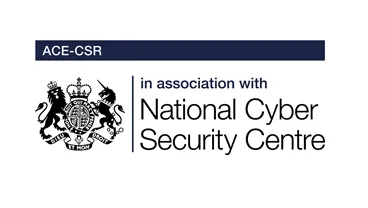King's Cybersecurity Centre is an EPSRC-NCSC Academic Centre of Excellence in Cyber Security Research (ACE-CSR). The centre brings together the diverse mass of researchers across King’s College London working on the socio-technical aspects of cyber security, including academics at the Departments of Informatics, the Department of War Studies, the Department of Defence Studies, the Department of Digital Humanities, and the Policy Institute.
While King's Cybersecurity Centre provides expertise on most areas of cyber security, it has a critical mass of researchers working on four main research themes and their interrelationship: AI Cyber Security, Human-centre Cyber Security, Formal Cyber Security, and Strategic Cyber Security.

Projects

Research Projects

Cyber Statecraft in an Age of Systemic Competition
Cyber Statecraft in an Age of Systemic Competition (CyCRAFT) is a collaboration between KCL, University of Bath and the Royal United Services Institute (RUSI).
Publications
- Febro A, Xiao H, Spring J, Christianson B. Edge Security for SIP-enabled IoT Devices with P4. COMPUTER NETWORKS. 2021 Dec.
- Abegunde J, Spring J, Xiao H. SEVA: A Smart Electronic Voting Application Using Blockchain Technology. In IEEE Blockchain - 2021 - The 4th IEEE International Conference on Blockchain - Online event Duration: 6 Dec 2021 → 8 Dec 2021. IEEE. 2021
- Abdi N, Zhan N, Ramokapane M, Such J. Privacy Norms for Smart Home Personal Assistants. In Conference on Human Factors in Computing Systems (CHI). ACM. 2021. p. 1-14
News
Keeping citizens safe online
Cybersecurity experts from King’s College London are leading work for a new national centre to keep people safe online through research and technology.

EPSRC awards £1.5m funding to King's-led Secure AI Assistants research
Led by King’s, a collaboration between King’s Cybersecurity Centre, Imperial College London and non-academic partners has received £1.5 million from the...

When is the likelihood of a cyber blackout?
With a world undergoing a digital transformation and becoming increasingly reliant on online technology, we look at emerging research estimating the risk of...

King's recognised for excellence in cyber security research
King’s College London has been recognised as an Academic Centre of Excellence in Cyber Security Research (ACE-CSR) by the National Cyber Security Centre...

Themes
AI Cyber Security
This comprises both the use of AI for cyber security (including data-driven techniques such as Machine Learning, but also knowledge-based techniques such as Argumentation, Normative Systems, Trust), and the cyber security of AI itself (including security, trust, privacy and transparency guarantees).
Human-centred Cyber Security
This comprises human factors in security and privacy as well as usable security and privacy. We study preferences, perceptions and mental models of security and privacy in systems, we design and develop novel user-centred and easy-to-use security and privacy mechanisms, and we create mechanisms to explain security and privacy in an actionable way.
Formal Cyber Security
This includes the theoretical aspects of cyber security such as theoretical computer science approaches for verification and testing to provide assurance, correctness and technology-readiness of security protocols, mobile and web applications, cyber-physical systems and the Internet of Things, blockchain, bitcoin, and cryptocurrencies.
Strategic Cyber Security
This includes the socio-political and strategic aspects of cyber security such as cyber risks, cyber threats, cyber intelligence, cyber policy and cyber defence, and their relationship to risk assessment, management and governance.
Projects

Research Projects

Cyber Statecraft in an Age of Systemic Competition
Cyber Statecraft in an Age of Systemic Competition (CyCRAFT) is a collaboration between KCL, University of Bath and the Royal United Services Institute (RUSI).
Publications
- Febro A, Xiao H, Spring J, Christianson B. Edge Security for SIP-enabled IoT Devices with P4. COMPUTER NETWORKS. 2021 Dec.
- Abegunde J, Spring J, Xiao H. SEVA: A Smart Electronic Voting Application Using Blockchain Technology. In IEEE Blockchain - 2021 - The 4th IEEE International Conference on Blockchain - Online event Duration: 6 Dec 2021 → 8 Dec 2021. IEEE. 2021
- Abdi N, Zhan N, Ramokapane M, Such J. Privacy Norms for Smart Home Personal Assistants. In Conference on Human Factors in Computing Systems (CHI). ACM. 2021. p. 1-14
News
Keeping citizens safe online
Cybersecurity experts from King’s College London are leading work for a new national centre to keep people safe online through research and technology.

EPSRC awards £1.5m funding to King's-led Secure AI Assistants research
Led by King’s, a collaboration between King’s Cybersecurity Centre, Imperial College London and non-academic partners has received £1.5 million from the...

When is the likelihood of a cyber blackout?
With a world undergoing a digital transformation and becoming increasingly reliant on online technology, we look at emerging research estimating the risk of...

King's recognised for excellence in cyber security research
King’s College London has been recognised as an Academic Centre of Excellence in Cyber Security Research (ACE-CSR) by the National Cyber Security Centre...

Themes
AI Cyber Security
This comprises both the use of AI for cyber security (including data-driven techniques such as Machine Learning, but also knowledge-based techniques such as Argumentation, Normative Systems, Trust), and the cyber security of AI itself (including security, trust, privacy and transparency guarantees).
Human-centred Cyber Security
This comprises human factors in security and privacy as well as usable security and privacy. We study preferences, perceptions and mental models of security and privacy in systems, we design and develop novel user-centred and easy-to-use security and privacy mechanisms, and we create mechanisms to explain security and privacy in an actionable way.
Formal Cyber Security
This includes the theoretical aspects of cyber security such as theoretical computer science approaches for verification and testing to provide assurance, correctness and technology-readiness of security protocols, mobile and web applications, cyber-physical systems and the Internet of Things, blockchain, bitcoin, and cryptocurrencies.
Strategic Cyber Security
This includes the socio-political and strategic aspects of cyber security such as cyber risks, cyber threats, cyber intelligence, cyber policy and cyber defence, and their relationship to risk assessment, management and governance.
Our Partners

The Engineering and Physical Sciences Research Council (EPSRC)

The National Cyber Security Centre






